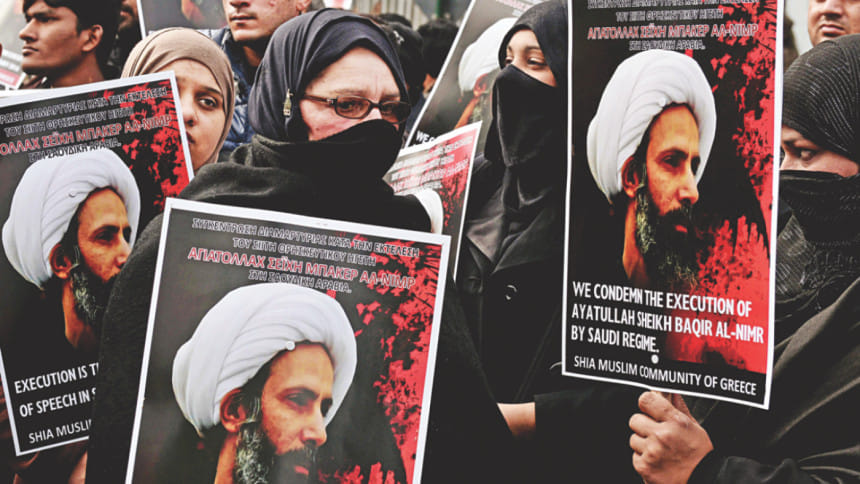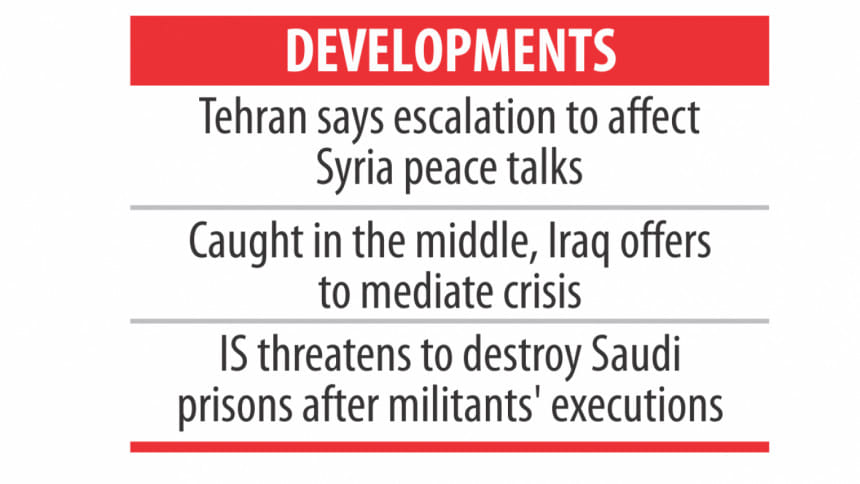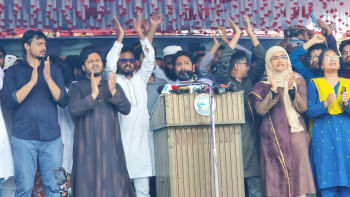Stop 'adding fuel to fire'

Iran warned Saudi Arabia to stop working against it yesterday as their diplomatic crisis intensified despite efforts to defuse a row that has raised fears of regional instability.
In the latest salvo in a dispute that has seen Saudi Arabia and some of its Sunni Arab allies cut ties with Tehran, Foreign Minister Mohammad Javad Zarif said Riyadh must end its prolonged efforts to confront Iran.
"For the past two-and-a-half years, Saudi Arabia has opposed Iran's diplomacy," Zarif said at a joint press conference in Tehran with Iraqi Foreign Minister Ibrahim al-Jaafari.
"Saudi Arabia has moved against our efforts and, unfortunately, they opposed the nuclear agreement," Zarif said.
"This trend of creating tension must stop. We need to stand united... and stop those who are adding fuel to the fire."
The spike in tensions comes after Iran last year secured a historic nuclear deal with world powers led by the United States, causing major concern in longtime US ally Riyadh.
The row between Saudi Arabia, the main Sunni power, and Shia-dominated Iran erupted following Riyadh's execution on Saturday of prominent Shia cleric and activist Sheikh Nimr al-Nimr. Nimr, one of 47 men executed on Saturday, was a driving force behind 2011 anti-government protests in Saudi Arabia's Eastern Province.
His death sparked Shia demonstrations in many countries including Iran, where protesters stormed and set fire to the Saudi embassy in Tehran and the kingdom's consulate in second city Mashhad.
The row has raised fears of an increase in sectarian tensions in the Middle East that could derail efforts to resolve pressing issues including the wars in Syria and Yemen.
The United Nations and Western governments have expressed deep concern, urging both sides to reduce tensions.
Meanwhile, Iraq yesterday offered to mediate between the rivals to end their dispute, saying it could spill over into the rest of the region.
Iraqi Foreign Minister Ibrahim al-Jaafari, speaking in Tehran with his Iranian counterpart Mohammad Javad Zarif, said the row could have "wide-ranging repercussions".

Analysts said Baghdad was particularly worried about anything that could disrupt its campaign against Islamic State militants.
There was no immediate reaction from Saudi Arabia to the Iraqi mediation offer.
Iraqi Prime Minister Haider al-Abadi, who leads his divided country with a Shia-dominated govenrment, has expressed "intense shock" at the execution of Nimr, condemning it as human rights violation.
But analysts say he has resisted pressure from Iranian-backed Shia militias, politicians and protesters to close the newly reopened Saudi embassy in Baghdad.
In another development, Islamic State yesterday threatened to destroy Saudi Arabian prisons holding jihadists after Riyadh's execution of 47 people including 43 convicted al Qaeda militants.
The militant group, which has claimed responsibility for attacks in the kingdom and stepped up operations in neighbouring Yemen, singled out the al-Ha'ir and Tarfiya prisons where many al-Qaeda and Islamic State supporters have been detained.

 For all latest news, follow The Daily Star's Google News channel.
For all latest news, follow The Daily Star's Google News channel. 



Comments